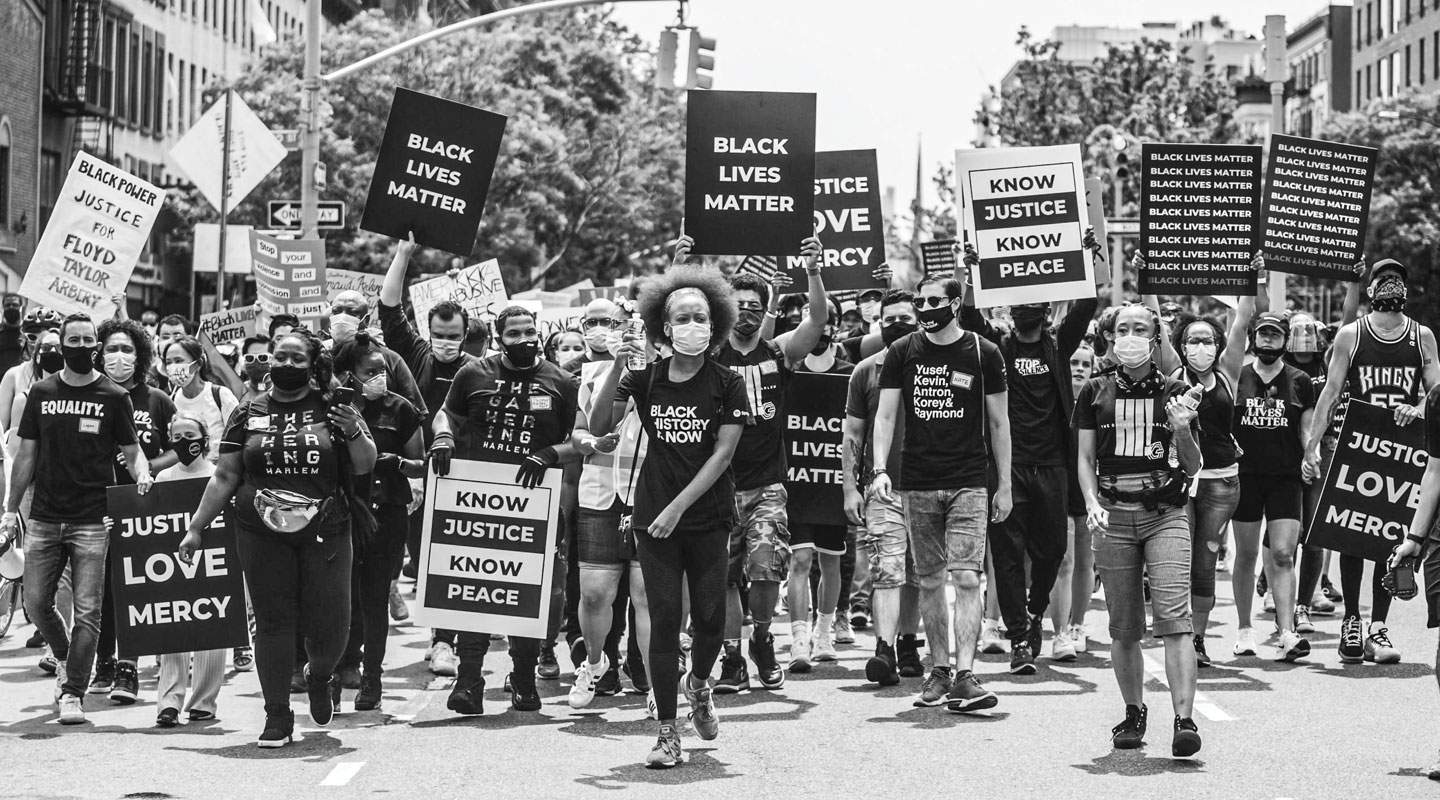When 15-year-old Kennedy Green learned about the death of George Floyd this past May, she was outraged. Floyd, a Black man, was killed by a white police officer in Minneapolis, Minnesota. While pinning Floyd to the ground, the officer pressed his knee into Floyd’s neck for more than eight minutes, slowly suffocating him—despite Floyd’s desperate pleas and the fact that he said “I can’t breathe” more than 20 times.
A 17-year-old bystander filmed the killing on her phone and posted it to social media. Like millions of people worldwide, Kennedy was horrified by what she saw in the video and knew she had to take action.
She turned to Twitter, where she connected with five teens in her area who were equally committed to getting justice for Floyd—and for the many other Black men, women, and children unjustly stopped, arrested, and even killed by police each year.
Within days, the girls had organized a Black Lives Matter protest in Nashville, Tennessee. The rally, which attracted 10,000 people, was one of the largest protests against white supremacy ever held in the city. Participants marched for more than five hours, calling attention to the many ways racism and discrimination affect Black people every day in the United States.
“I’m happy a lot of people are realizing that there’s a problem with the system,” says Kennedy. “I don’t want to see kids after us have to protest.”
When 15-year-old Kennedy Green learned about the death of George Floyd this past May, she was outraged. Floyd, a Black man, was killed by a white police officer in Minneapolis, Minnesota. While pinning Floyd to the ground, the officer pressed his knee into Floyd’s neck for more than eight minutes. He slowly suffocated him, despite Floyd’s desperate pleas and the fact that he said “I can’t breathe” more than 20 times.
A 17-year-old bystander filmed the killing on her phone. She posted it to social media. Like millions of people worldwide, Kennedy was horrified by what she saw in the video. She knew she had to take action.
She turned to Twitter, where she connected with five teens in her area. They were equally committed to getting justice for Floyd. They also wanted justice for the many other Black men, women, and children unjustly stopped, arrested, and even killed by police each year.
Within days, the girls had organized a Black Lives Matter protest in Nashville, Tennessee. The rally attracted 10,000 people. It was one of the largest protests against white supremacy ever held in the city. People who took part marched for more than five hours. They called attention to the many ways racism and discrimination affect Black people every day in the United States.
“I’m happy a lot of people are realizing that there’s a problem with the system,” says Kennedy. “I don’t want to see kids after us have to protest.”

